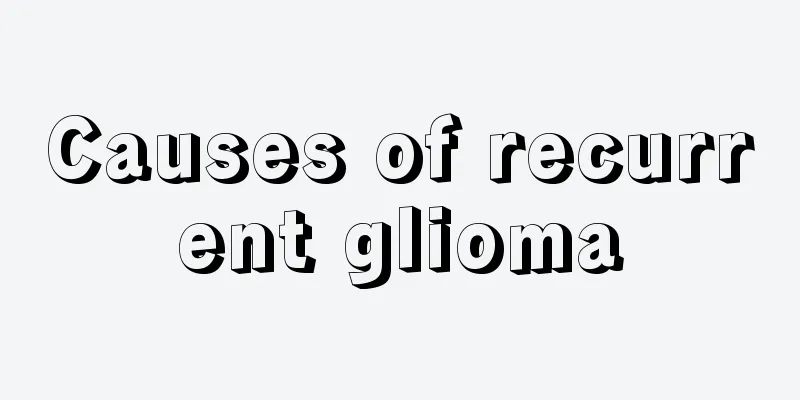What should I do if my baby always has a runny nose?

|
The baby is the hope of the whole family, so the baby's physical health is related to the happiness of the whole family. But things are unpredictable, and babies are bound to have some problems as they grow up. Another thing that worries some parents is that their babies often have a runny nose, which is not caused by a cold, but they have a runny nose for no reason. Is this a disease? What should parents do if their baby has a runny nose? Many children nowadays suffer from allergies. For example, after being allergic to cold air or having an infection, the nasal mucosa has not fully recovered from the cold and hot stimulation. The nasal mucosa that has not fully recovered from the inflammation will be stimulated and will have clear nasal discharge. Another reason is that the runny nose secretions may be infected with bacteria over a long period of time, so the mucus is yellow. Children over two years old should still see an ENT doctor. It is more like the blockage is caused by inflammation of the nasal mucosa and hypertrophy of the nasal angle. It is not a problem of runny nose, but a problem of local inflammation. Children of this age have mucosal fragility, including easy edema, which is a common problem. Blockage at the nasal breathing entrance can cause some symptoms. If you have a runny nose for a long time and it affects the resistance of the entire nasal corner or nasal mucosa, making it prone to infection, you should go to the hospital. Oral medications may not be completely effective, but topical medications suitable for local inflammation can be used. Natural remedy 1: hot compress Method: Use a hot, wet towel to apply hot compress on the baby's nose. Principle: When the nasal mucosa shrinks when exposed to heat, the nasal cavity will be more unobstructed and the sticky nasal mucus will be easier to hydrate and flow out. Suggestion: Mothers should be gentle when applying hot compress. If you find mucus in the baby's nostrils, you can clean it with a cotton swab dipped in water first. You can also slowly massage your baby's nose or the sides of his nose. Natural remedy 2 drops of breast milk Method: The breastfeeding mother drips the expressed breast milk into the baby's nostrils. Principle: Because of the warmth of breast milk, the baby's nasal cavity can be temporarily unblocked. Suggestion: This method is just a folk remedy and has no scientific evidence, so mothers may as well try it first. Natural remedy 3: Elevate your head Method: Place several small pillows evenly under the mattress under the baby's head to make the mattress look like a smooth, 30° slope. Principle: As the saying goes, "People go to high places, water flows to low places." By raising the baby's head, the snot in the nasal cavity will flow down naturally, and it will not block the nasal cavity and make the baby unable to sleep. Suggestion: A stuffy or runny nose may sometimes affect your baby's sleep. This method can only slightly relieve your baby's symptoms, but the effect will not last long. Natural remedy 4: Blow your baby’s nose The most effective way to help your baby breathe smoothly is to help him blow his nose. The mother can gently press one of the baby's nostrils, and snot will naturally flow out of the other nostril. The mother can then wipe off the snot with a clean soft gauze handkerchief. Principle: Press one side of the nasal cavity, and the baby will only breathe out through the other nostril, and the snot will flow out easily. The conventional method of pinching the nose to blow the nose will only cause the baby to feel disgusted and it is easy to break the baby's nose. Recommendation: Whether you are pressing the nasal cavity or wiping the nose, you must be gentle; in addition, the gauze handkerchief used to blow your nose must be kept clean and fresh, and it is best to wash it after one use. Otherwise, repeated wiping is not only unhygienic and causes cross-infection, but it will also become harder and hurt the baby. When the baby has a runny nose, parents should never let the child pick the nose with their hands, because this can easily scratch the nose. At the same time, the bacteria in the fingernails can invade the child's nasal cavity and cause other diseases. If parents want to give their children medicine, it is best to listen to the advice of the pediatrician and never feed the children medicine blindly. |
<<: Is it good to take vitamin B2 every day?
>>: Will gastric bleeding definitely result in black stools?
Recommend
What should you pay attention to before and after prostate cancer surgery
There are many treatments for prostate cancer, bu...
Do you know the difference between vitiligo and anemic nevus?
Vitiligo and anemic nevus are two very common dis...
What are the symptoms of anemic eyes
Eyes are extremely important to us. It is said th...
What to do with mild liver fibrosis? Traditional Chinese medicine conditioning is effective
If you are diagnosed with mild liver fibrosis, th...
What is the difference between licorice and moxibustion licorice
There are certain differences between licorice an...
Should I see a Chinese doctor or a Western doctor for hyperthyroidism
Hyperthyroidism is a phenomenon of abnormal secre...
What in perfume is harmful to the human body
For women who love beauty, using perfume is a way...
Is the Jade Flower poisonous?
Jade flower, also known as bean sprout green, is ...
What are the dangers of uterine cancer
Among gynecological diseases, uterine cancer is a...
What are the reasons for foam in urine
There is foam in a lot of urine, so it makes peop...
Does proctitis cause anal pain?
Proctitis may cause pain inside the anus, especia...
Things to note when using ear cartilage to pad the nose tip
In modern society, many female friends are paying...
Can melanoma be contagious during sexual intercourse?
Melanoma is a type of skin cancer. Is it contagio...
There are black spots inside the nails when I cut them
Friends who often watch TV will often see some ad...
Can moxibustion be used on the breasts?
Moxibustion is a kind of physical therapy. Many p...









